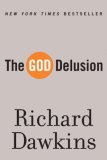Summary | Excerpt | Reviews | Beyond the Book | Readalikes | Genres & Themes | Author Bio

Critics' Opinion:
Readers' Opinion:
First Published:
Sep 2006, 416 pages
Paperback:
Jan 2008, 464 pages
 Book Reviewed by:
Book Reviewed by:
BookBrowse Review Team
Buy This Book
Amusingly, Sagan's last point was foreshadowed by the Reverend
Dr Fulton J. Sheen, a professor at the Catholic University of America, as part
of a fierce attack upon Einstein's 1940 disavowal of a personal God. Sheen
sarcastically asked whether anyone would be prepared to lay down his life for
the Milky Way. He seemed to think he was making a point against Einstein,
rather than for him, for he added: 'There is only one fault with his cosmical
religion: he put an extra letter in the word – the letter "s".' There is nothing
comical about Einstein's beliefs. Nevertheless, I wish that physicists would
refrain from using the word God in their special metaphorical sense. The
metaphorical or pantheistic God of the physicists is light years away from the
interventionist, miracle-wreaking, thought-reading, sin-punishing, prayer-answering God of the Bible, of priests, mullahs and rabbis, and of ordinary
language. Deliberately to confuse the two is, in my opinion, an act of
intellectual high treason.
UNDESERVED RESPECT
My title, The God Delusion, does not refer to the God of Einstein and the
other enlightened scientists of the previous section. That is why I needed to
get Einsteinian religion out of the way to begin with: it has a proven capacity
to confuse. In the rest of this book I am talking only about supernatural gods,
of which the most familiar to the majority of my readers will be Yahweh, the
God of the Old Testament. I shall come to him in a moment. But before
leaving this preliminary chapter I need to deal with one more matter that
would otherwise bedevil the whole book. This time it is a matter of etiquette.
It is possible that religious readers will be offended by what I have to say, and
will find in these pages insufficient respect for their own particular beliefs (if
not the beliefs that others treasure). It would be a shame if such offence
prevented them from reading on, so I want to sort it out here, at the outset.
A widespread assumption, which nearly everybody in our society
accepts – the non-religious included – is that religious faith is especially
vulnerable to offence and should be protected by an abnormally thick wall of
respect, in a different class from the respect that any human being should
pay to any other. Douglas Adams put it so well, in an impromptu speech
made in Cambridge shortly before his death, that I never tire of sharing his
words:
Religion . . . has certain ideas at the heart of it which we call sacred or holy
or whatever. What it means is, 'Here is an idea or a notion that you're not
allowed to say anything bad about; you're just not. Why not? – because
you're not!' If somebody votes for a party that you don't agree with, you're
free to argue about it as much as you like; everybody will have an argument
but nobody feels aggrieved by it. If somebody thinks taxes should go up or
down you are free to have an argument about it. But on the other hand if
somebody says 'I mustn't move a light switch on a Saturday', you say, 'I
respect that'.
Why should it be that it's perfectly legitimate to support the Labour party or the Conservative party, Republicans or Democrats, this
model of economics versus that, Macintosh instead of Windows – but to have
an opinion about how the Universe began, about who created the
Universe . . . no, that's holy? . . . We are used to not challenging religious
ideas but it's very interesting how much of a furore Richard creates when he
does it! Everybody gets absolutely frantic about it because you're not allowed
to say these things. Yet when you look at it rationally there is no reason why
those ideas shouldn't be as open to debate as any other, except that we
have agreed somehow between us that they shouldn't be.
Here's a particular example of our society's overweening respect
for religion, one that really matters. By far the easiest grounds for gaining
conscientious objector status in wartime are religious. You can be a brilliant
moral philosopher with a prizewinning doctoral thesis expounding the evils of
war, and still be given a hard time by a draft board evaluating your claim to be
a conscientious objector. Yet if you can say that one or both of your parents
is a Quaker you sail through like a breeze, no matter how inarticulate and
illiterate you may be on the theory of pacifism or, indeed, Quakerism itself.
Copyright © 2006 by Richard Dawkins. Reprinted by permission of Houghton Mifflin Company





The House on Biscayne Bay
by Chanel Cleeton
As death stalks a gothic mansion in Miami, the lives of two women intertwine as the past and present collide.

The Flower Sisters
by Michelle Collins Anderson
From the new Fannie Flagg of the Ozarks, a richly-woven story of family, forgiveness, and reinvention.

The Funeral Cryer by Wenyan Lu
Debut novelist Wenyan Lu brings us this witty yet profound story about one woman's midlife reawakening in contemporary rural China.
Your guide toexceptional books
BookBrowse seeks out and recommends the best in contemporary fiction and nonfiction—books that not only engage and entertain but also deepen our understanding of ourselves and the world around us.